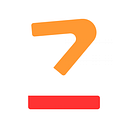Ethereum’s Role in the Rise of Decentralized Autonomous Organizations (DAOs)
The emergence of Decentralized Autonomous Organizations (DAOs) has marked a significant shift in how organizations can operate, driven largely by the capabilities of blockchain technology. At the forefront of this evolution is Ethereum, a platform that has provided the necessary infrastructure for DAOs to thrive. This blog will explore Ethereum’s pivotal role in the rise of DAOs, examining its features, advantages, and the implications for businesses and potential clients interested in Ethereum development services.
Understanding DAOs
DAOs are organizations that are run through smart contracts on a blockchain. Unlike traditional organizations, which rely on a central authority or management structure, DAOs operate on a decentralized model. This means decisions are made collectively by token holders, ensuring transparency and reducing the risk of corruption or mismanagement.
Key characteristics of DAOs include:
- Decentralization: No single entity controls the organization; decisions are made through consensus among stakeholders.
- Smart Contracts: These self-executing contracts automate processes and enforce rules without human intervention.
- Transparency: All transactions and decisions are recorded on the blockchain, making them visible to all members.
Ethereum: The Backbone of DAOs
Ethereum, launched in 2015 by Vitalik Buterin, is more than just a cryptocurrency; it is a decentralized platform that enables developers to create smart contracts and decentralized applications (dApps). This functionality is crucial for the operation of DAOs. Here’s how Ethereum supports DAOs:
- Smart Contract Functionality: Ethereum allows developers to write complex smart contracts that define the rules and governance structures of DAOs. These contracts execute automatically when predetermined conditions are met, facilitating trustless interactions among members.
- Token Standards: Ethereum’s ERC-20 and ERC-721 token standards enable the creation of tokens that can represent voting rights or ownership stakes in a DAO. This tokenization is essential for governance and incentivizing participation.
- Community Governance: Through mechanisms like token-based voting, members can propose changes or vote on key decisions affecting the DAO. This democratic approach fosters community engagement and accountability.
The Advantages of Using Ethereum for DAOs
Businesses looking to establish or engage with DAOs can benefit significantly from using Ethereum:
- Robust Ecosystem: Ethereum has one of the largest developer communities and a wealth of existing tools and frameworks for building dApps and DAOs. This ecosystem accelerates development timelines and reduces costs.
- Interoperability: As a widely adopted platform, Ethereum allows DAOs to interact with various other dApps and services, enhancing their functionality and reach.
- Security: The Ethereum blockchain is secured by a vast network of nodes, making it resistant to attacks and ensuring that smart contracts operate as intended.
Challenges Facing DAOs on Ethereum
While Ethereum provides numerous advantages for DAOs, there are challenges that organizations must navigate:
- Scalability Issues: As more users join the network, transaction speeds can slow down, leading to higher fees. This can impact the efficiency of DAO operations.
- Regulatory Uncertainty: The legal status of DAOs remains ambiguous in many jurisdictions. Organizations must stay informed about regulations that could affect their operations.
- Complexity in Governance: Designing effective governance structures can be challenging. Poorly structured governance can lead to conflicts or disengagement among members.
Case Studies of Successful DAOs on Ethereum
Several successful DAOs have emerged on the Ethereum platform, showcasing its capabilities:
- MakerDAO: One of the first successful DAOs, MakerDAO governs the DAI stablecoin. Members vote on changes to collateral types and risk parameters, demonstrating effective decentralized governance.
- Aragon: Aragon provides tools for creating and managing DAOs easily. It empowers users to set up their own organizations without needing extensive technical knowledge.
- MolochDAO: Focused on funding Ethereum development projects, MolochDAO utilizes a simple governance structure that allows members to propose grants easily while maintaining transparency.
The Future of DAOs and Ethereum Development
As businesses increasingly recognize the benefits of decentralized governance models, the demand for Ethereum development services will likely grow. Companies looking to create their own DAOs must consider several factors:
- Choosing the Right Development Partner: Selecting an experienced Ethereum development company is crucial for navigating technical complexities and ensuring robust smart contract design.
- Understanding Community Dynamics: Effective DAO governance requires understanding community needs and dynamics. Engaging potential members early in the process can foster buy-in and participation.
- Staying Ahead of Regulatory Changes: Keeping abreast of evolving regulations will help ensure compliance and mitigate risks associated with operating a DAO.
- Implementing Security Best Practices: Conducting thorough security audits and employing best coding practices will minimize vulnerabilities in smart contracts.
- Adopting Scalability Solutions: As transaction volumes grow, implementing layer 2 scaling solutions or exploring alternative blockchains may enhance performance while reducing costs.
The Integration of AI into DAOs
The future may also see the integration of artificial intelligence (AI) into DAO operations. AI could enhance decision-making processes by analyzing data trends or automating routine tasks within organizations. This integration could lead to more efficient operations while maintaining decentralized governance principles.
Conclusion
Ethereum plays an essential role in facilitating the rise of Decentralized Autonomous Organizations by providing a robust platform for smart contracts and decentralized governance. As businesses explore this innovative model, they should consider partnering with experienced providers like Codezeros for their Ethereum development services. By doing so, they can harness the full potential of DAOs while navigating the complexities associated with this new paradigm in organizational structure.
For those interested in exploring how you can implement these technologies within your organization or develop your own DAO, reach out to Codezeros today for expert guidance on your journey into Ethereum development.
